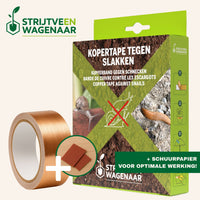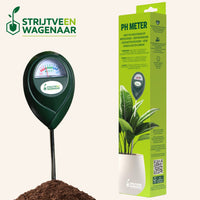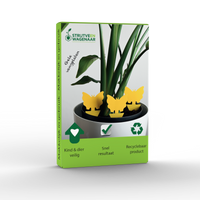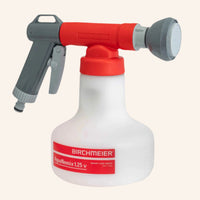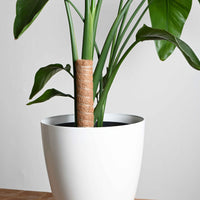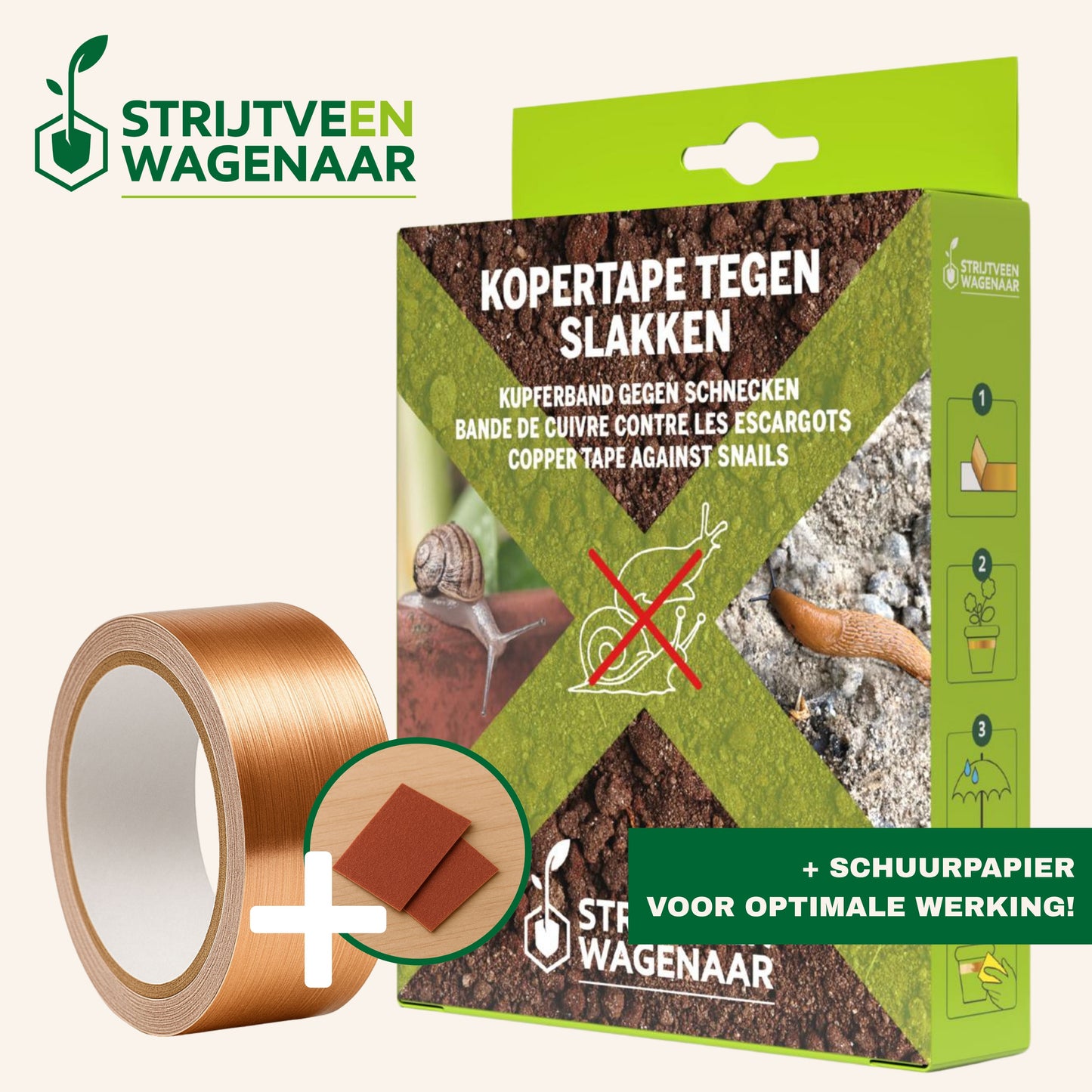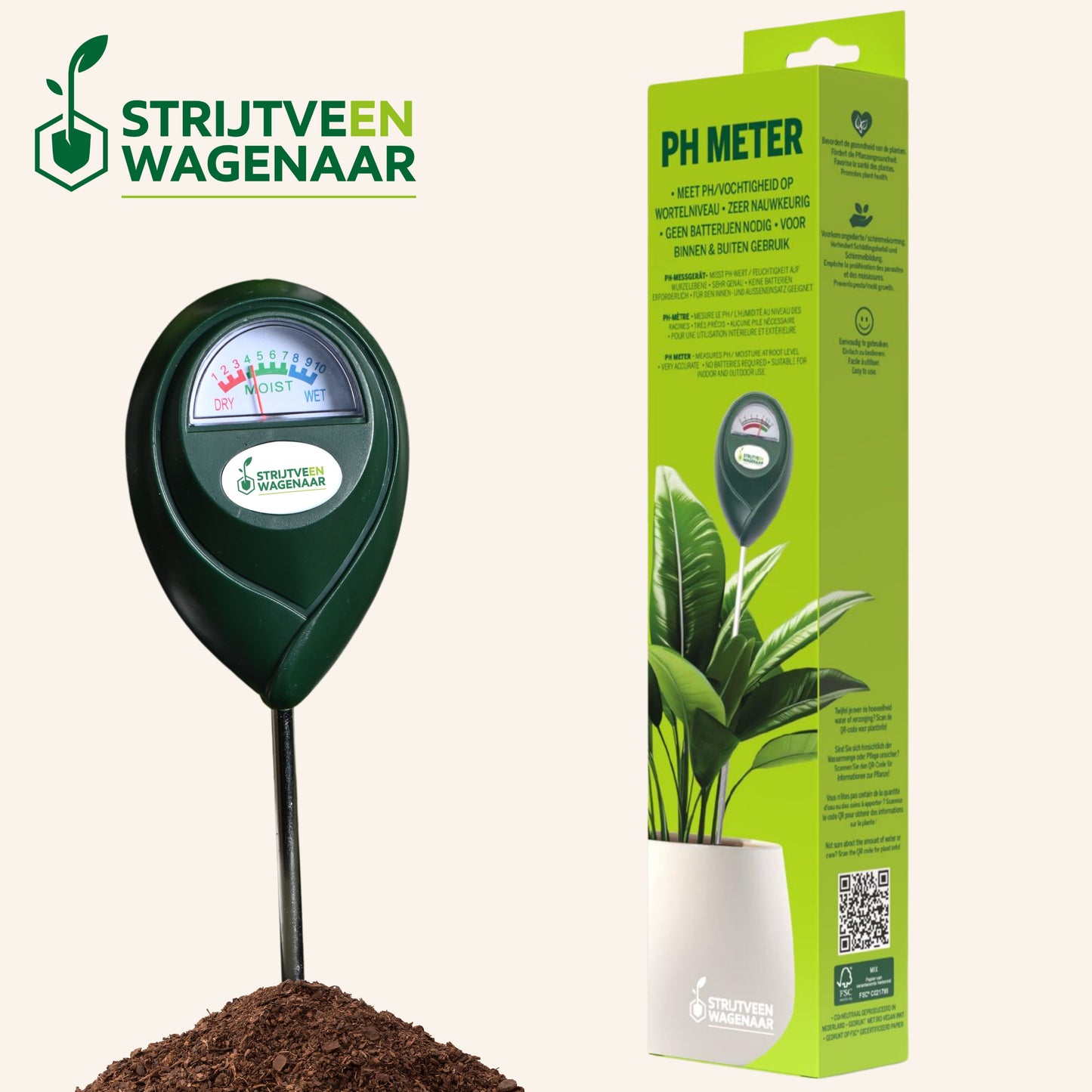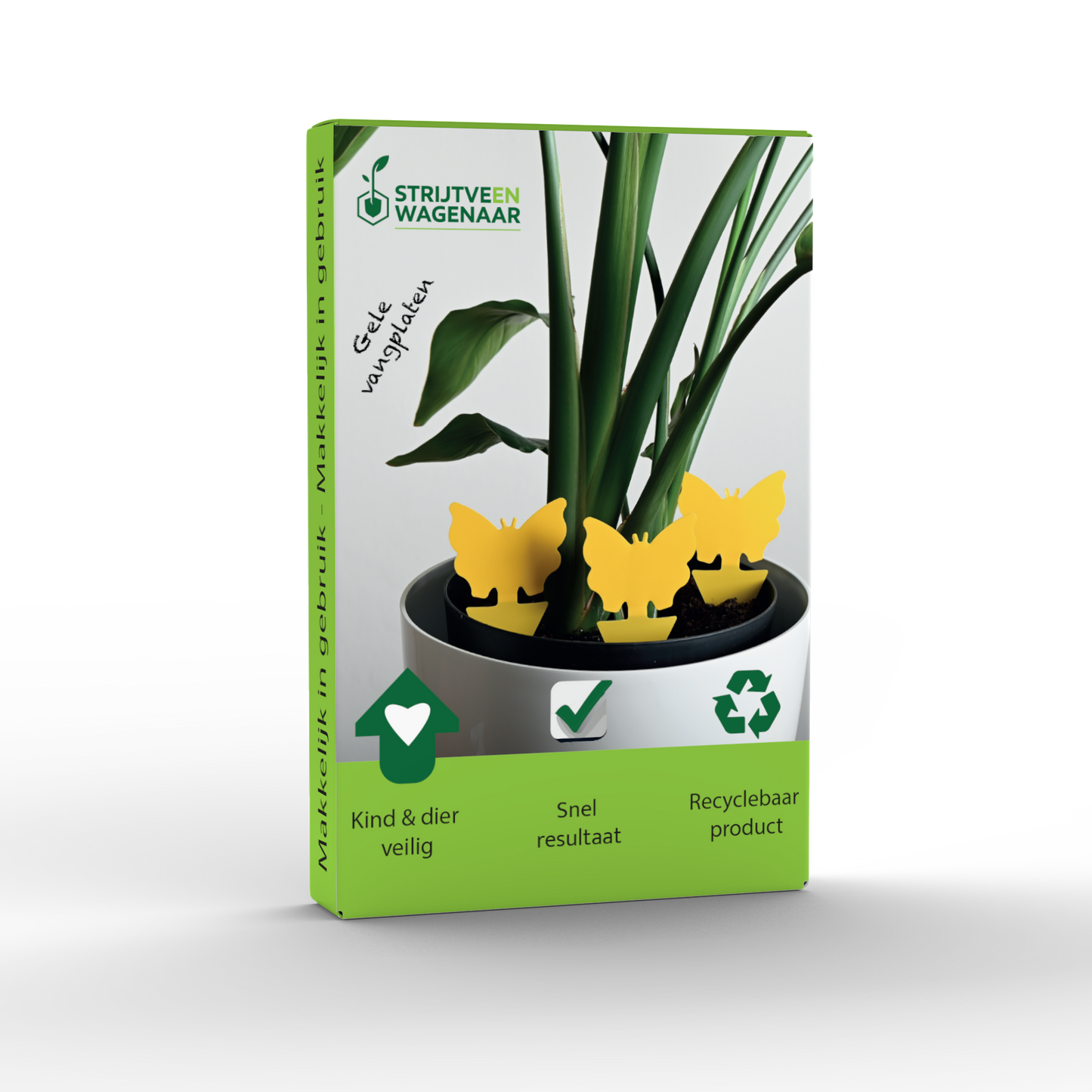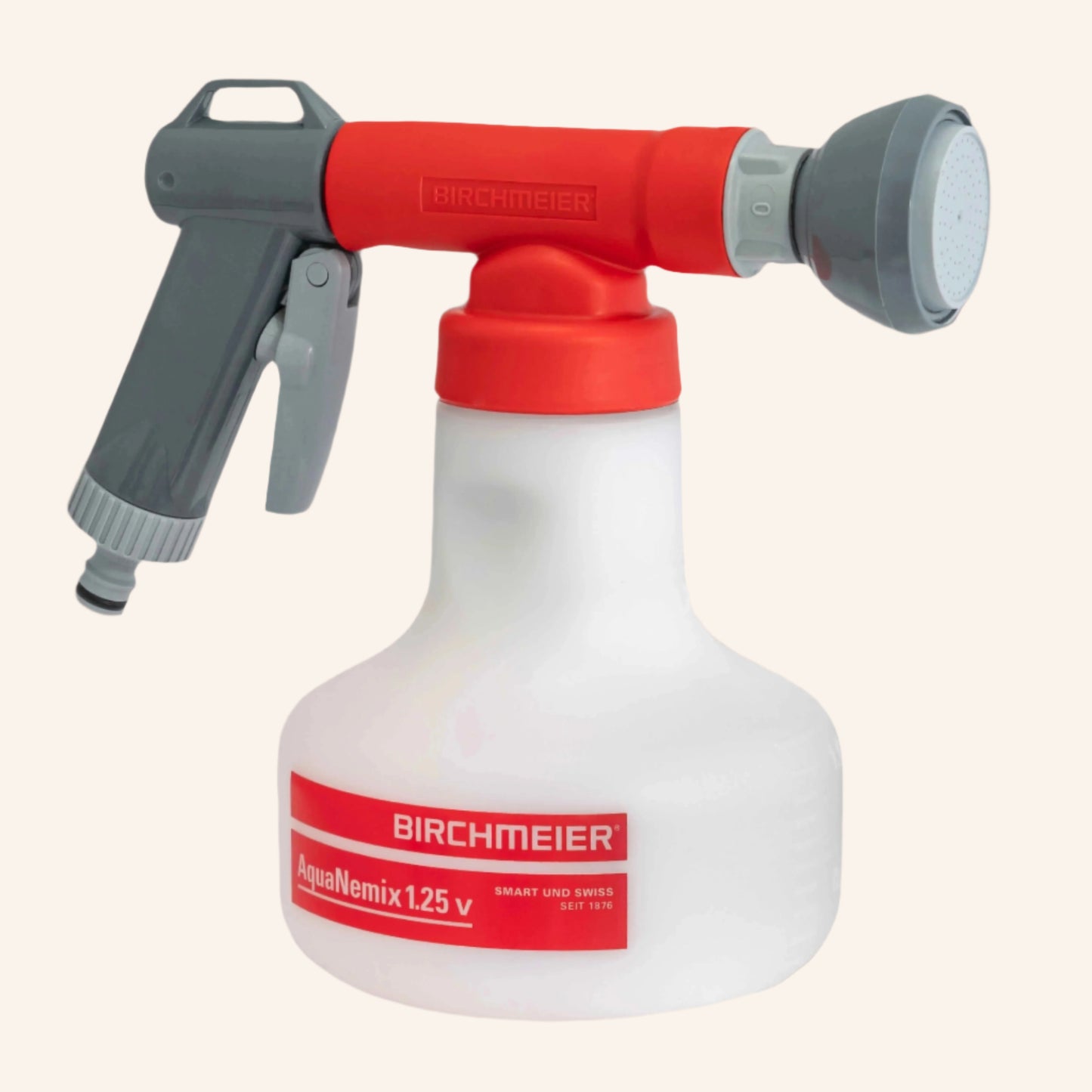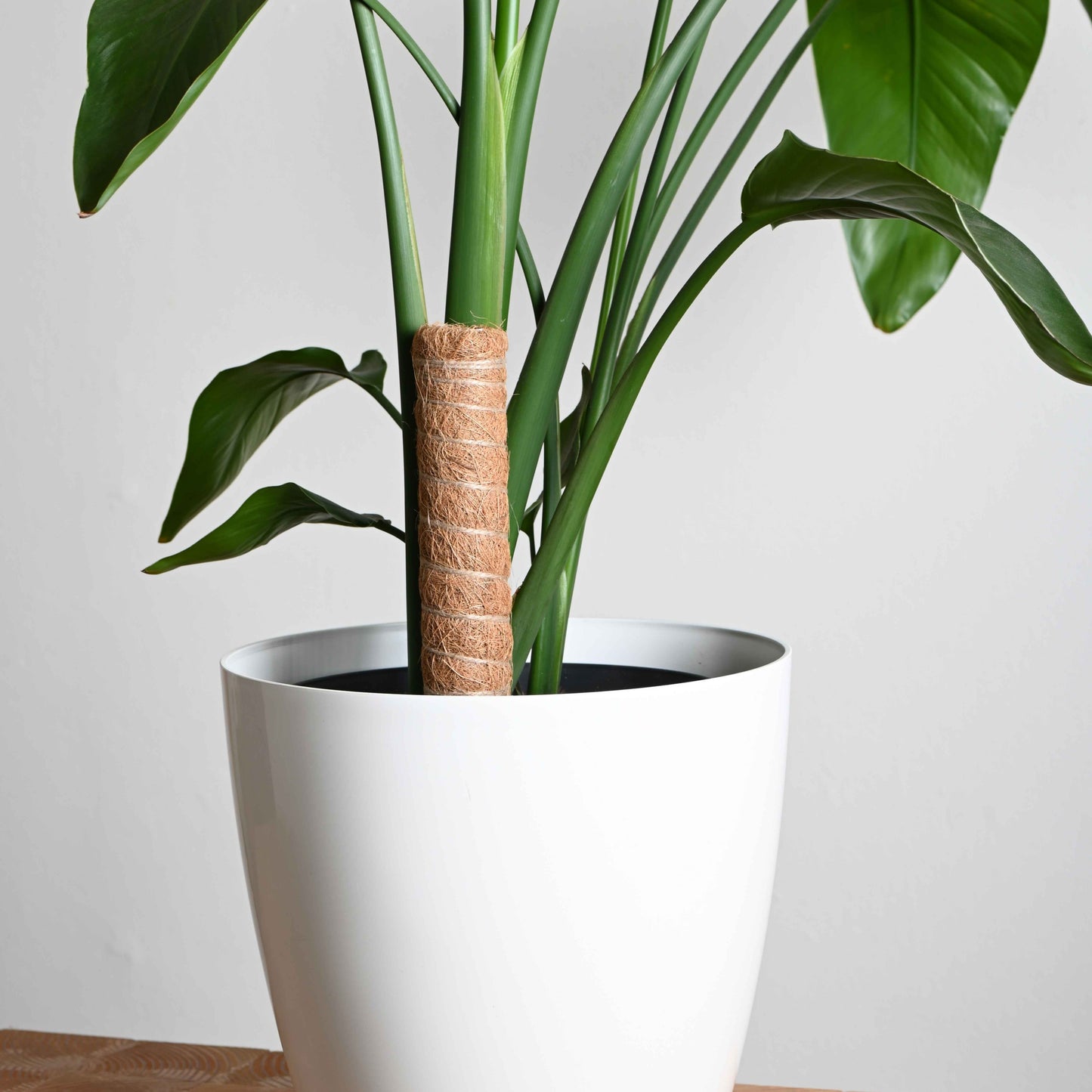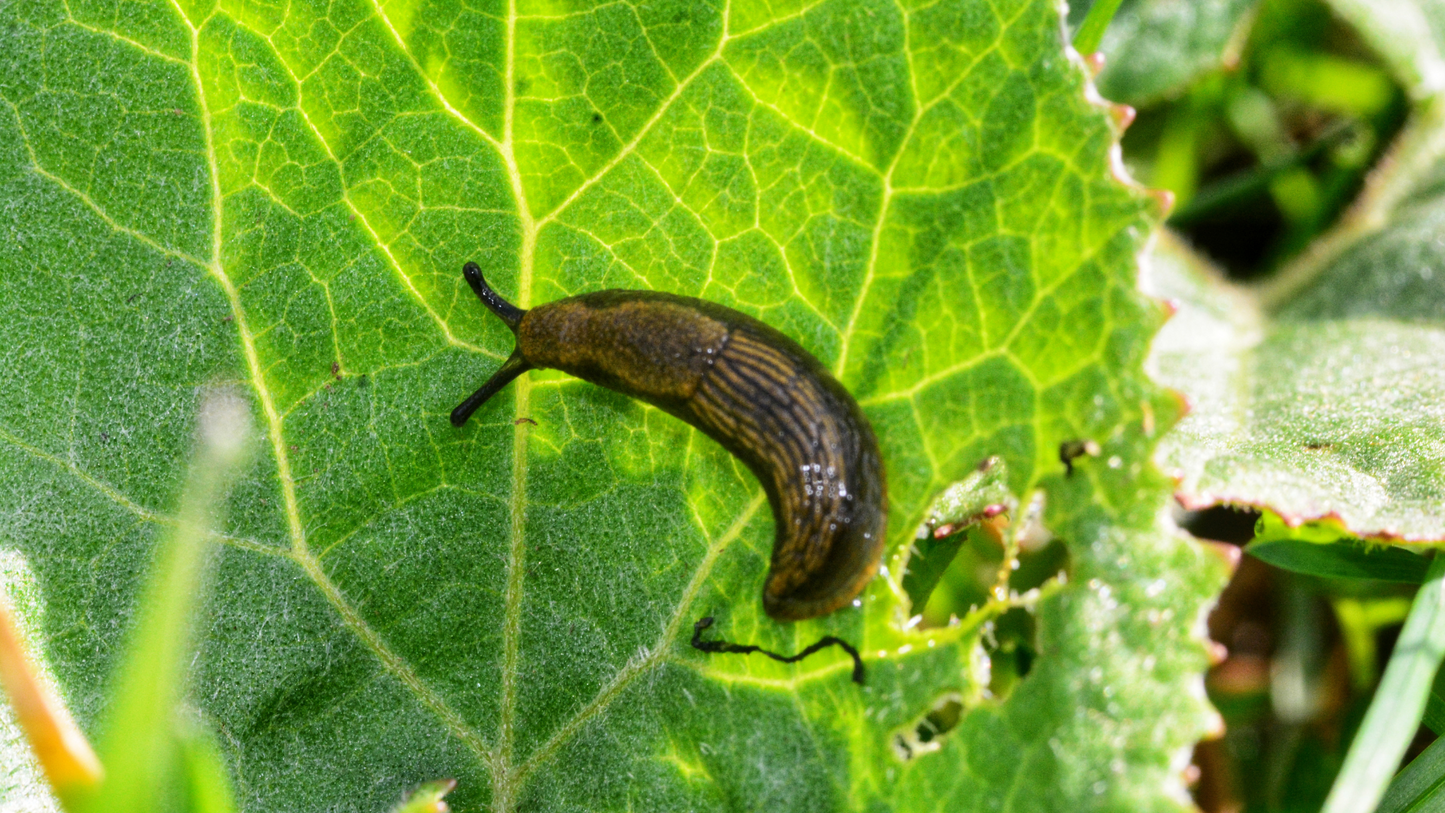
Naaktslakken in je tuin kunnen een flinke domper zijn. Ze vreten met gemak jonge plantjes aan, laten slijmsporen achter op je bloemen en lijken ’s nachts ineens massaal op te duiken. Daarnaast planten naaktslakken zich ook nog eens snel voort. Gelukkig zijn er genoeg slimme manieren om ze aan te pakken. In deze blog leer je hoe naaktslakkenplagen ontstaan, welke planten je beter kunt vermijden, hoe je je tuin minder aantrekkelijk maakt voor slakken en wat je kunt doen als het écht uit de hand loopt. Mét oma’s tips, natuurlijk.
Hoe ontstaan naaktslakkenplagen in je tuin?
Naaktslakken zijn dol op vocht, warmte en beschutting. Ze komen vooral ’s nachts tevoorschijn, leggen honderden eitjes per seizoen en kunnen zich razendsnel voortplanten. Zeker na regen of in het voorjaar zie je ze ineens overal.
Benieuwd hoe lang een naaktslak eigenlijk leeft? We leggen het uit in onze blog over de levensduur van naaktslakken.
Heb je veel bodembedekking, losse plantenresten of schaduwplekken in je tuin? Dan hebben slakken daar een ideale leefomgeving. Als je dan ook nog elke avond water geeft of slechte afwatering hebt, is het feest compleet. Voeg daar sappige blaadjes aan toe en je hebt een slakkenparadijs gecreëerd zonder het te willen.
Hoe kun je naaktslakken voorkomen?
Voorkomen is altijd beter dan genezen. Door slim met je tuin om te gaan kun je het slakkenklimaat flink verstoren. Hier zijn een paar dingen die je kunt doen om je tuin minder aantrekkelijk te maken voor naaktslakken.
Houd de bodem droger
Naaktslakken houden van vochtige grond. Geef daarom bij voorkeur ’s ochtends water, zodat de bodem overdag kan opdrogen. Zorg daarnaast voor een goed doorlatende bodemstructuur met voldoende drainage. Met een simpele vochtigheidsmeter weet je precies of je te veel water geeft.
Verwijder schuilplekken
Organisch materiaal zoals afgevallen bladeren, takken of mulch is perfect om je tuinplanten te beschermen, maar ook ideaal voor slakken om zich onder te verstoppen. Houd je tuin daarom netjes en ruim regelmatig losse plantenresten op.
Pas op met mulch
Mulch houdt de bodem lekker vochtig, maar dat maakt het ook aantrekkelijk voor slakken. Gebruik het dus met mate en kies voor mulchsoorten die snel drogen, zoals cacaodoppen of dennennaalden. Die maken het de slakken ook fysiek moeilijker om te kruipen.
Deze planten helpen mee of juist niet
Niet elke plant is even aantrekkelijk voor naaktslakken. Sommige soorten hebben sappige blaadjes die slakken heerlijk vinden. Andere planten zijn juist taai, geurend of irriterend, en blijven daardoor meestal met rust. Door slim te kiezen kun je schade beperken of zelfs voorkomen.
Planten die naaktslakken aantrekken
- Hosta’s zijn echte slakkenmagneten door hun zachte, brede bladeren.
- Sla en andijvie zijn ook populair: mals, sappig en makkelijk aan te knagen.
- Afrikaantjes (Tagetes) worden vaak als lokplant gebruikt, omdat slakken er massaal op afkomen.
Planten die naaktslakken op afstand houden
- Lavendel heeft een sterke geur en taaie blaadjes waar slakken niet van houden.
- Salie en tijm zijn kruidig en droog van structuur, wat slakken afschrikt.
- Varen en vrouwenmantel zijn minder smakelijk door hun textuur en worden vaak met rust gelaten.
Oma weet raad: slakken bestrijden
Tijd voor de klassiekers. Je oma had misschien geen internet, maar ze wist wél hoe je slakken op afstand hield. Hier zijn haar beproefde middeltjes.
Koffiedik
Strooi wat opgedroogd koffiedik rondom je planten om slakken te weren. Ze houden niet van de sterke geur én de korrelige textuur onder hun slijmerige lijf. Het is een makkelijke manier om een onaantrekkelijke barrière te creëren. Laat het koffiedik wel goed drogen voor je het gebruikt, anders maak je de grond juist te nat.
Zaagsel of houtas
Slakken kruipen niet graag over scherpe, droge materialen. Een randje van zaagsel of houtas rondom je planten maakt het hen een stuk moeilijker. Na regen moet je het wel opnieuw aanbrengen, want zodra het nat wordt, verliezen deze middelen hun werking.
Eierschalen
Gebroken eierschalen zijn een klassieker in de strijd tegen slakken. De scherpe randjes vormen een natuurlijke barrière waar slakken liever niet overheen gaan. Strooi ze in een cirkel rond kwetsbare plantjes en vervang ze af en toe voor een blijvend effect.
Bierval
Een simpele bierval kan wonderen doen. Graaf een schaaltje of beker in op gelijke hoogte met de grond en vul het met bier. Slakken worden aangetrokken door de geur, vallen erin en kunnen er niet meer uit. Simpel, doeltreffend en al jaren favoriet bij moestuiniers.
Avondsproeien vermijden
Slakken zijn vooral 's nachts actief en dol op vochtige omstandigheden. Als je ’s avonds sproeit, maak je het ze wel héél comfortabel. Beter is om ’s ochtends water te geven, zodat de grond tegen de avond droger is.
Plankval maken
Leg een houten plank of tegel op een vochtige plek in de tuin. Slakken verstoppen zich er overdag graag onder. Til de plank ’s ochtends op en verzamel de slakken. Zo houd je de populatie op een eenvoudige manier in toom.
Fysieke barrières tegen naaktslakken
Naast geurtjes en vallen kun je ook letterlijk een muur optrekken voor slakken. Deze simpele, fysieke barrières werken verrassend goed en zijn makkelijk zelf te maken.
Plastic flessen
Een oude plastic fles kun je eenvoudig omtoveren tot een slakkenkraag. Snijd de onderkant van de fles af en plaats het bovenste deel als een kraag om je plant. De gladde wand van de fles vormt een fysieke hindernis waar slakken niet overheen kunnen kruipen. Vooral effectief bij jonge of kwetsbare plantjes in de moestuin.
Vaseline
Slakken houden niet van gladde oppervlakken. Door een laagje vaseline op de rand van je bloempotten of plantenbakken te smeren, glijden ze letterlijk weg. Ze verliezen grip en haken af. Je moet het af en toe opnieuw aanbrengen, vooral na regen of veel zon.
Koper
Koperen tape of een koperen ring rondom je plantenpotten werkt verrassend goed. Bij aanraking met het koper krijgen slakken een licht elektrisch schokje. Het is niet pijnlijk, maar wel vervelend genoeg om ze te laten omkeren. Een milieuvriendelijke en duurzame oplossing die je eenmalig aanbrengt.
Natuurlijke vijanden van naaktslakken
Een gezonde tuin heeft zijn eigen evenwicht. Naaktslakken zijn namelijk prooi voor allerlei dieren, vooral als ze nog jong zijn. Door je tuin aantrekkelijk te maken voor hun natuurlijke vijanden help je de natuur een handje. Lees onze tips voor meer biodiversiteit.
Egels
Egels zijn echte slakkenjagers. Ze struinen 's nachts door de tuin en eten vooral jonge tot middelgrote naaktslakken. Zorg voor een doorgang in de schutting en een rommelhoekje of egelhuisje om ze welkom te heten.
Padden en kikkers
Vooral padden zijn dol op jonge slakken en slakkeneitjes. Heb je een vijver of vochtige plek in de tuin? Dan zijn deze helpers snel van de partij. Geef ze schaduwrijke, koele schuilplekken tussen bladeren of stenen.
Loopkevers
Loopkevers en hun larven eten slakkeneitjes en jonge slakken. Ze houden van een losse bodem en voldoende bodembedekking. Laat daarom wat bladeren of mulch liggen zodat ze zich thuis voelen.
Aaltjes
Aaltjes tegen naaktslakken zijn microscopisch kleine beestjes die je met water over de bodem verspreidt. Ze dringen jonge slakken binnen en schakelen ze van binnenuit uit. Deze methode is natuurlijk, veilig en bijzonder doeltreffend.
Samenvatting: wat helpt tegen naaktslakken?
Naaktslakken houden van vocht, beschutting en sappige bladeren. Door je tuin droger en opgeruimder te houden, kun je ze al flink ontmoedigen. Kies voor planten die slakken afstoten en lok hun natuurlijke vijanden, zoals egels en vogels, naar je tuin. Wil je de larven gericht aanpakken? Dan zijn aaltjes een veilige en doeltreffende oplossing. En vergeet oma’s trucs niet, want een bierval of wat koffiedik kan soms nét het verschil maken.
